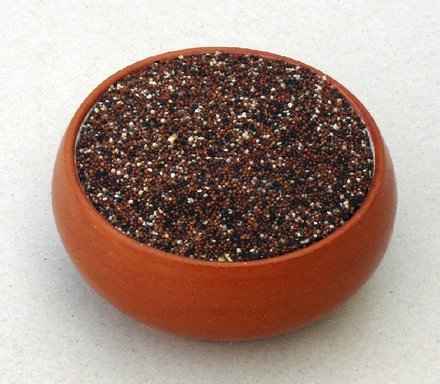6 Signs That You’re Taking Your Weight Loss Goals Too Far
You might be willing to try anything to get to your weight loss goals. The problem is, this type of ‘do whatever it takes’ thinking can come back to bite you. While some of these hardcore strategies may help your drop weight quickly, they are not always so great for your health or your long-term success. They can leave you feeling unwell and lead to putting those pounds right back on.
Here are 6 signs you are taking your efforts too far:
1. You drink more than 2 liters of water a day.
Drinking water is good but doing it in an attempt to calm your appetite is not. Having some water before a snack or meal can help you eat less and lose weight but it could be dangerous if you are doing it in place of a meal. The water won’t be enough to satisfy you and could lead to a binge later because you’re depriving your body of important nutrients, says Natalie Rizzo, R.D., a New York City nutritionist. The amount of water you actually need depends on your weight and activity level but more than 2 liters is likely going too far. Signs you are drinking too much include peeing more than 8 times a day and having a consistently clear stream.
Because it is okay to let your foot off the gas once in a while! Click To Tweet2. You haven’t eaten your favourite foods in two to three weeks.
Getting rid of the high calorie foods you love might seem like a good idea, but it could lead to disaster. “A rigid fixation on what you eat can backfire in two ways,” says clinical psychologist Elizabeth Lombardo, Ph.D., author of Better Than Perfect. You don’t eat when your diet friendly foods aren’t available and then you have a ‘cheat’ meal and end up going overboard. And when you think about it, cutting way, way back on macronutrients like carbs or dairy, isn’t really sustainable. It can lead to gaining the weight back and some nutritional deficiencies. “Healthy carbs, including whole grains, contain the majority of fiber in the diet,” Rizzo says. Without this fiber, you could become constipated and develop digestive troubles. Without healthy fats, your brain function and memory can start to suffer. Eating your favourite foods once in a while won’t kill you.
3. You work out every single day.
If you are feeling exhausted and achy all the time or skipping out on social engagements to squeeze in another workout, you might want to rethink things a little. Jessica Cording, R.D., a dietician at the Hospital for Special Surgery in New York, says that making cuts to your social life can leave you feeling lonely and isolated which can lead to an emotional eating binge down the road. Besides, learning how to balance your time spent with friends and family and your time spent at the gym is one of the key factors for long term sustainability. And if you aren’t getting enough rest, your workouts could start to become counter productive. “When you’re short on rest, it impacts your hunger hormones, which leads to an increase in appetite,” says Cording.
4. You consume less than 1,200 calories.
While no two women have the exact same caloric needs, your energy intake should never fall below 1,200 calories. If it does, your body will slip into starvation mode which means it will hold on to all of the calories it does get. Cording suggests focusing on foods that will give you the most ‘nutritional bang for your buck.’ Pile your plate with vegetables and prioritize lean protein. Don’t be afraid of healthy fats. They help you feel full and satisfied. For a better idea of how to balance your meals and meet your calorie totals, check out the BodyRock Meal Plan. Not just a menu planner, the BodyRock Meal Plan includes a nutrition guide that offers you valuable information about your body and how to fuel it AND it comes with a recipe book that includes over 70 delicious options!
5. You weigh yourself daily.
Your scale is not the only way to measure weight loss success and progress. Your weight can fluctuate dramatically even over the course of a single day. Try weighing yourself once a week and focus on other areas of progress like the way your clothes fit and your energy levels. Body measurements are also a great way to track your efforts. Weighing yourself daily can turn into an obsession. If it makes you feel anxious or worried, the habit can ramp up your stress hormones leading to weight gain and emotional eating.
6. Your motivation to lose weight is all about how you look.
The way you think about your body can impact its appearance. “Studies show that people who think they’re overweight are more likely to gain weight than those who don’t think they’re overweight,” says Lombardo. Being hard on yourself does NOTHING to improve your self-esteem. Don’t worry so much about how you want to change yourself, worry about how you feel — physically, socially and emotionally. If you do this, you can be proud of the work you are doing on those bad days when you aren’t feeling so great about how you look.
Have you found a way to balance weight loss efforts with sustainable living? Share your tips with us!
Source: Women’s Health
-
How To Reach The Ideal Weight With Foods That Burn Belly Fat Very Fast
Foods that burn belly fat: affordable, nutritious, and healthy. Eff
-
Planning for Successful Weight Loss
Achieving a long-term goal typically requires careful planning. Weight
-
Weightlifting Workouts Help You Gain Weight
Are you suffering from severe insecurity and living a torturous life b
-
Weight Loss Tips for Overweight Teens
This article will present teen weight lo
-
Tips to Keep You Motivated on Your Weight Loss Plan
Weight loss can be a struggle for some.
-
Great Ideas For Rewarding Yourself For Weight Loss
Weight loss is hard work. A person tryin
- DON'T MISS
- Foods to Eat on the Paleo Diet
- Slowing Down Can Help You Lose Weight Faster
- Living Off The Grid - 2 Years To Energy Independance
- Fitness Solutions For Women On The Go
- Seven Portion Control Tips For Dieters
- What Makes The Best Weight Loss App?
- Sculpting A Better Body With The Proper Weight Loss Plan
- Start Living A Healthy Life With The Help Of A Good Weight Loss Program.
- Im trying to lose weight. Could protein shakes help?
- Weight Loss: Think Thin, Be Healthy; EFT Can Help




